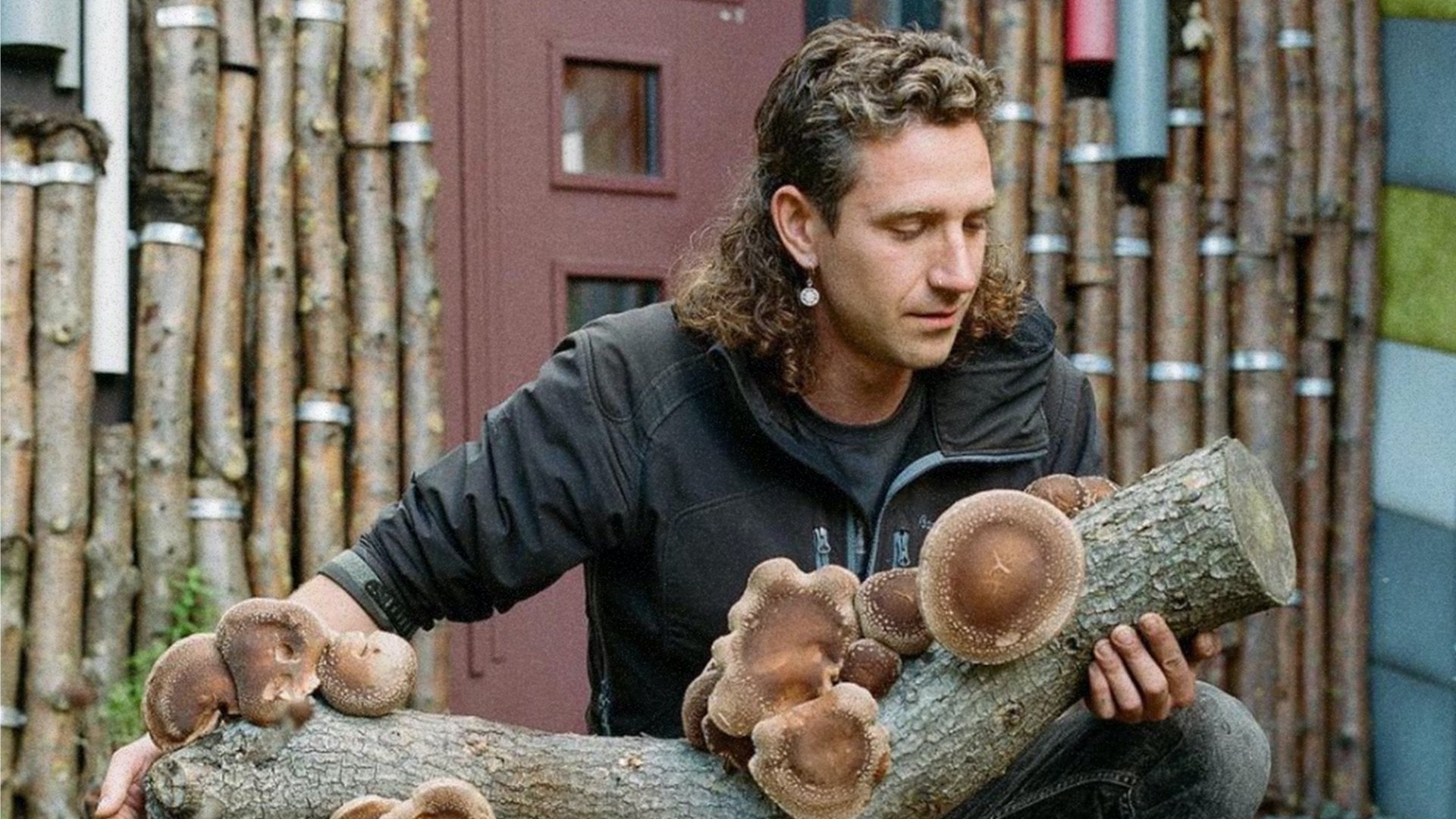Non-human organisms solving human problems
In ‘Meet the Creator’ we talk to inspiring creatives about their work and motivations. This time: Jamie Nee. Artist, activist and microbiology student, Jamie is committed to spreading messages about the importance of protecting ourselves from ourselves.
Friends around him were engaging in activism, but the actions of Chinese artist Ai Wei Wei sparked a lot of energy to use the body for activism. ‘We used to be more political in art school but trying to get by as a solo-business owner pushes you to work for the market.’’ Jamie’s old urge to use his images to send a message about important topics led him to join Extinction Rebellion (XR), an environmental activists’ group, almost from the moment it propagated in the Netherlands.
‘’Almost all activists have this, you go through a rather unpleasant phase, where you can’t unsee anything anymore. Everything is corrupt and wrong, people around you, especially the ones close to you, do things that are not okay. So, you clash with them.’’ Jamie also went through that phase but eventually it got better. The penny dropped and he realised it's pointless to blame and shame people close to you. ‘’But it’s good to find a way to point out things constructively. Now I think I've developed a kind of switch in my head, that I can turn on or off. So I can choose sometimes to not let it in, use something like sarcasm and humour as a coping mechanism. ‘’Although I still think it’s very important to have social control and sometimes confront people with their shit.’’
Joining the Extinction Rebellion group was an intriguing time for Jamie. ‘’It was a cool, colourful artistic movement that applied civil disobedience to disrupt everyday life; “business as usual”. That was very exciting to me.’’ Jamie worked in the Arts department but also organised in the Action & Logistics workgroup. ’’Regenerative culture actually stuck the most to my mind whereas I was not in that workgroup at all. I guess Arts is also a regenerative culture. It covers several topics, such as self-care and mental health, as burn-outs are rather common among activists.’’
The regenerative culture encompasses an entire way of living. According to Extinction Rebellion it is about the following: ‘’A regenerative human culture is healthy, resilient and adaptable; it cares for the planet and it cares for life.’’ This regenerative culture became a sort of a philosophical, natural and spiritual ideal to Jamie. ‘’Questions like: what are we going to do if we get our way or if it all fails, or if we are allowed to invent a new kind of society.’’
‘It has something very primeval, it existed before us, before language, it was invented by the first bacterial communities. Regenerative Culture is actually nature. Nature continues and survives everything. It will continue to recreate and redevelop: it regenerates. New life forms will always emerge.’’ Nature could live on without us, therefore the issue is about how humans can live in balance with nature. ‘’And live with the rules bacteria, fungi, worms and plants set out for us to observe and study. I learned this from my gut I think, but Robin Wall Kimmerer vocalises it beautifully, read her work! People that involve themselves with Regenerative Culture try to practise making the world a better place instead of using more than we need and extracting it like our western ways want us to do. How can we follow those laws of nature, which will continue anyway, how can we learn from them and apply it to our systems?’’

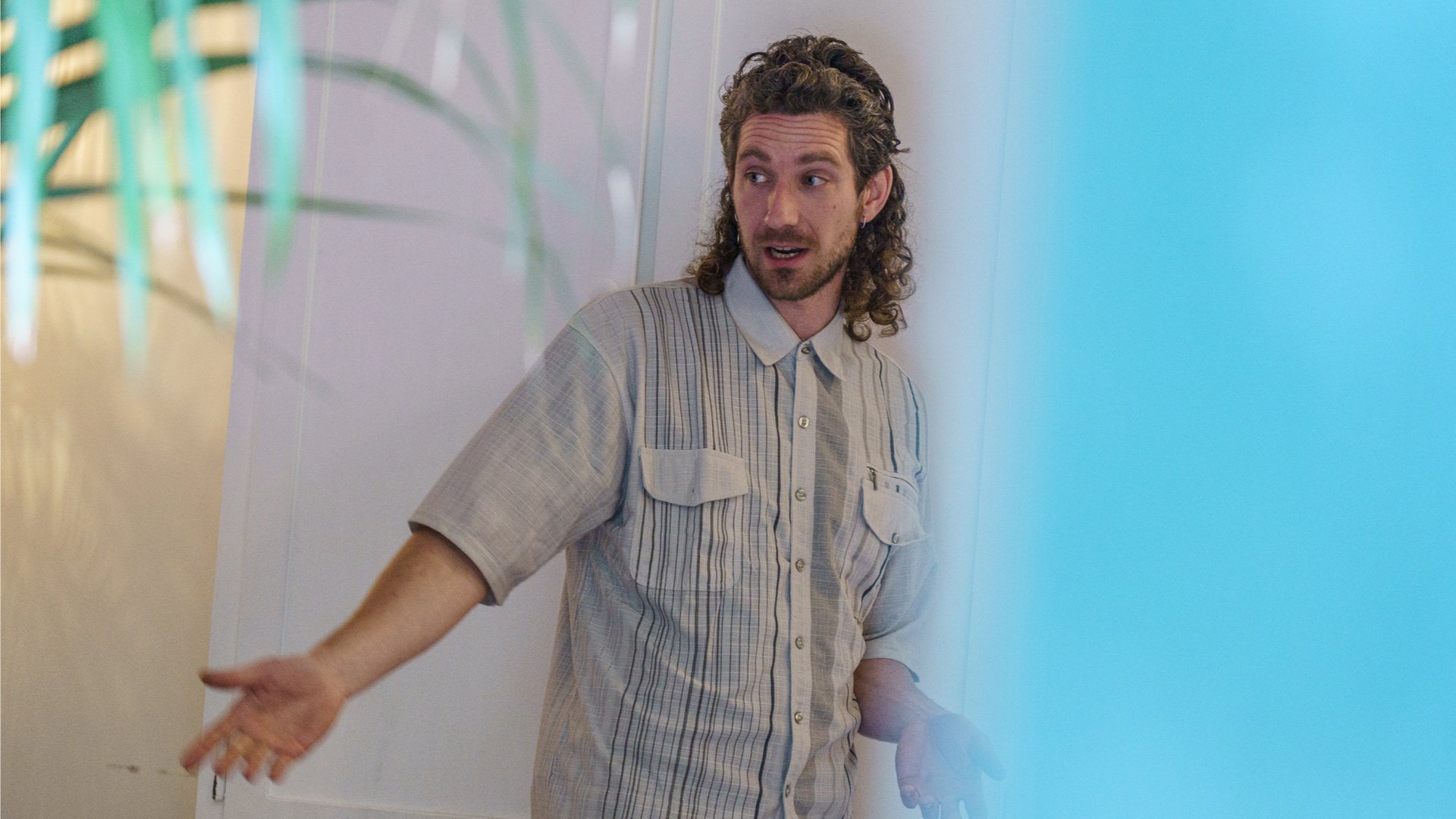
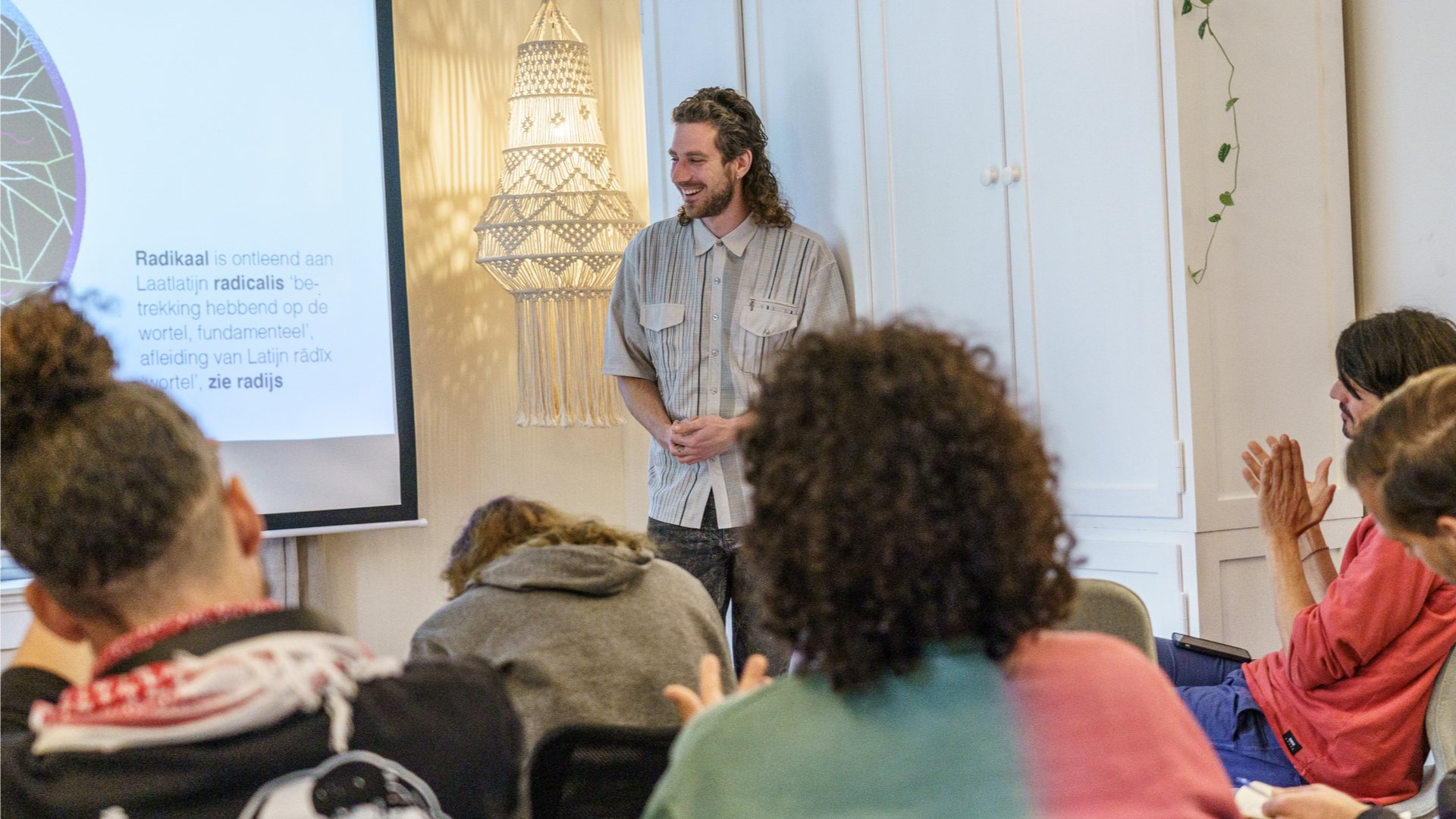
Worm paradise
Understanding other organisms is crucial for answering such questions, Jamie thinks.
‘’That’s why I came up with projects such as The Worm Paradise.’’ Jamie creates a construction kit, made of reused wood, that allows you to build a worm ‘hotel’, with its inhabitants turning your organic waste into living compost. ‘’The idea is that you take an ecosystem as a pet, that you can bring nature into your home and see these natural recycling processes up close, it’s real nature inclusive living.’’
Jamie teaches several courses and workshops where participants learn to build these kinds of things, or how to grow fungi on tree trunks. Other courses are on permaculture, ‘’where you’ll learn why biodiversity is the key to everything and that this diversity is responsible for complex substances that can heal us.’’
That’s when Jamie turned to biology, and even microbiology. ‘’The foundation of all life is bacteria; we have to understand that better. Our food is our first need and the production is our direct relationship with natural processes, society has to radically change how it grows the things we eat. That's how I got into gardening and therefore biology. Practising that was a logical next step for me.’’
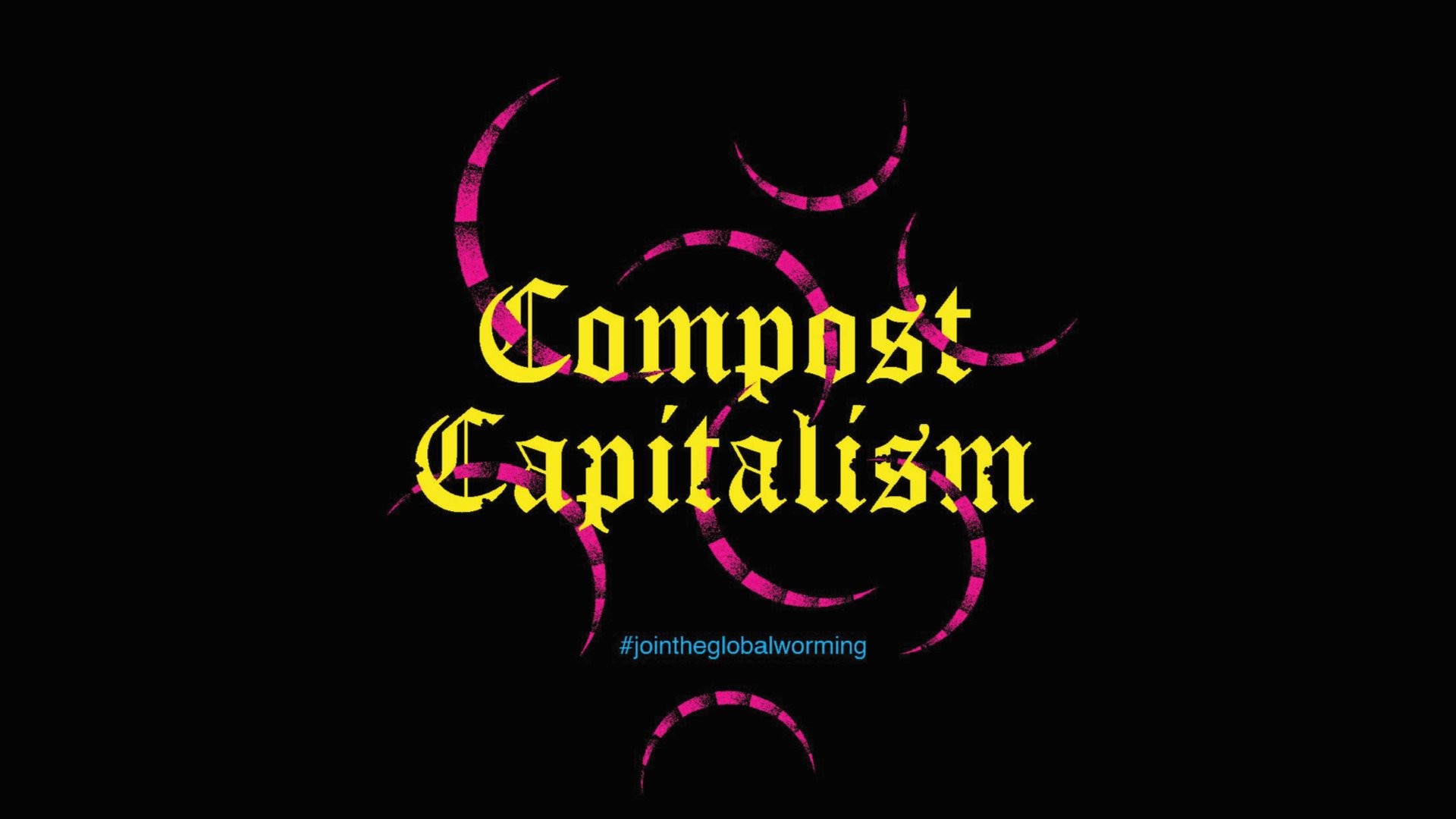
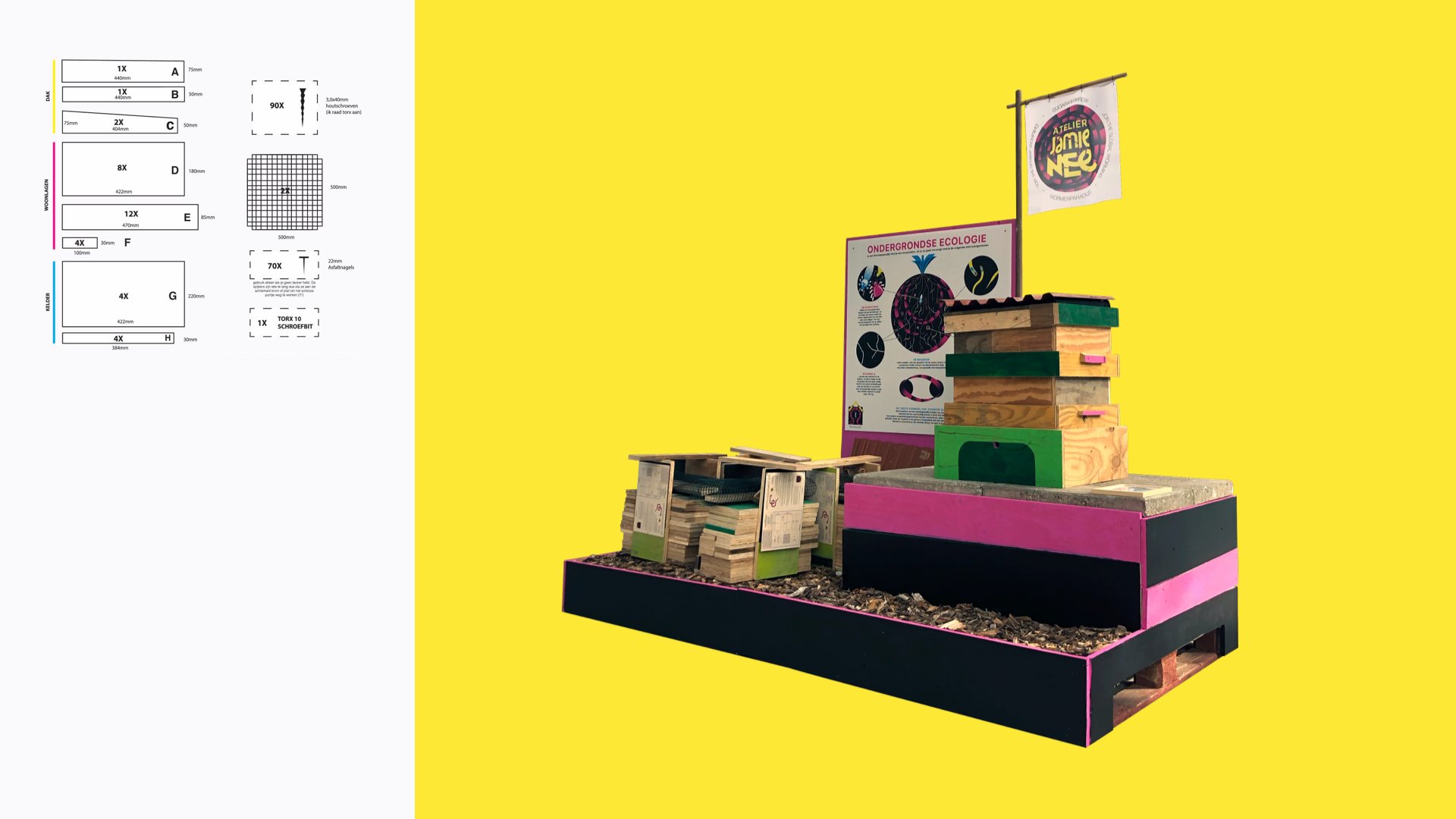
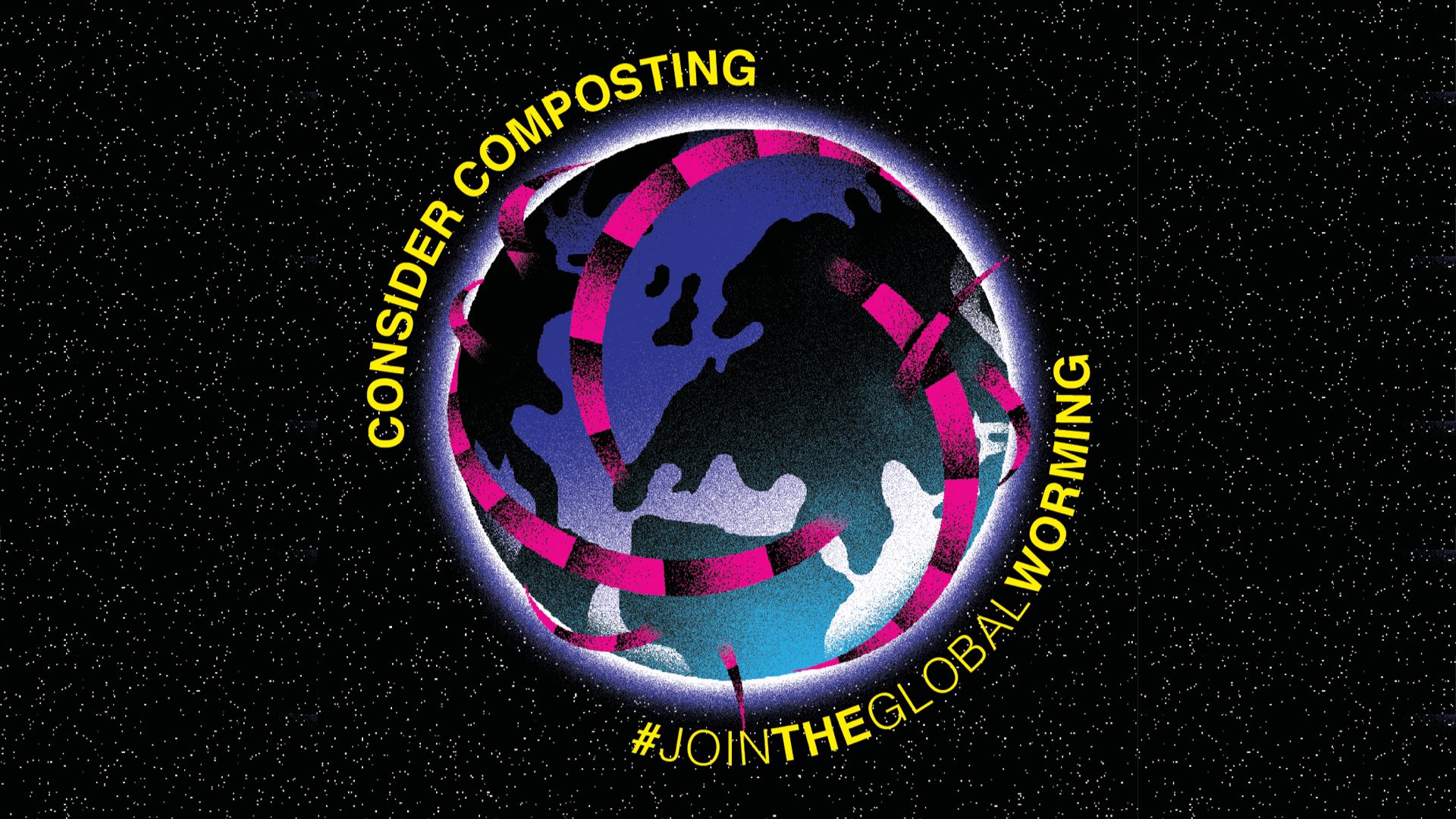
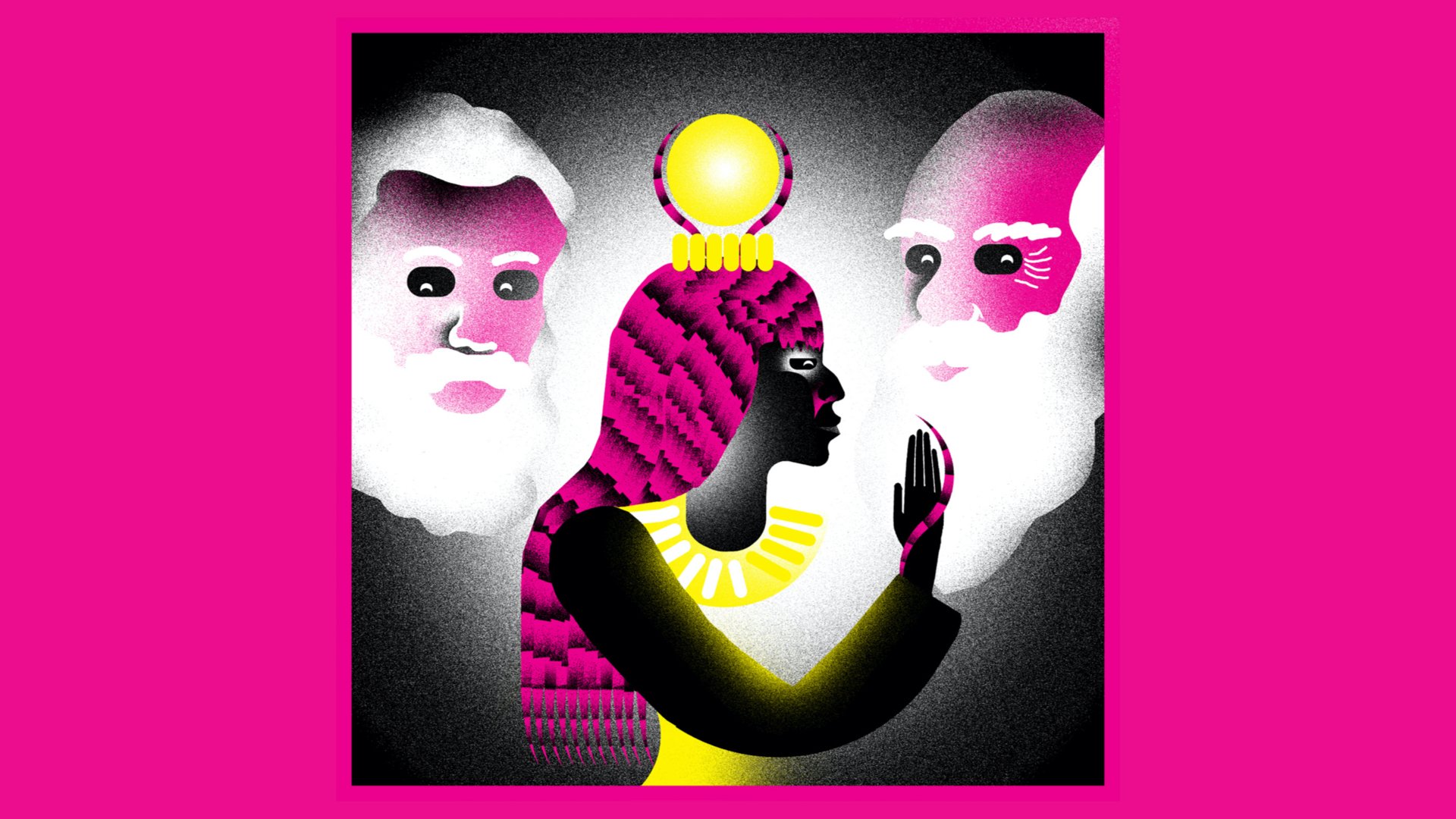
Exploring the benefits that the things we eat can have, is a world waiting to be discovered. ‘’Especially fungi they are chemical engineers and the fungi kingdom is traditionally very unattended in biology, nowadays it is getting more attention.’’ An especially important aspect that seems to be ignored in our agriculture, is the complex relationship between fungi and plants. ‘’More than 90 percent of all plants like to interact with fungus and are not happy without fungus, they are inextricably linked. This fungus provides plants with minerals when they need it. In our agriculture we simply apply minerals when we want to and however much we want to, causing to mess up the mineral balance. But in the end it's even more complex is about the relationship between all the six realms: bacteria, protists, fungi, plants, animals and even viruses. We have to acknowledge that we are far from understanding this.‘’
‘’With this diversity, plants can make very complex building blocks that we need to be truly healthy. Our animal bodies can’t synthesise most of what we need, that's why we have a microbiome. Did you know that weeds have better fungal partner relationships than our agricultural crops? More complete amino- and fatty acids: maybe we should eat them instead.’’
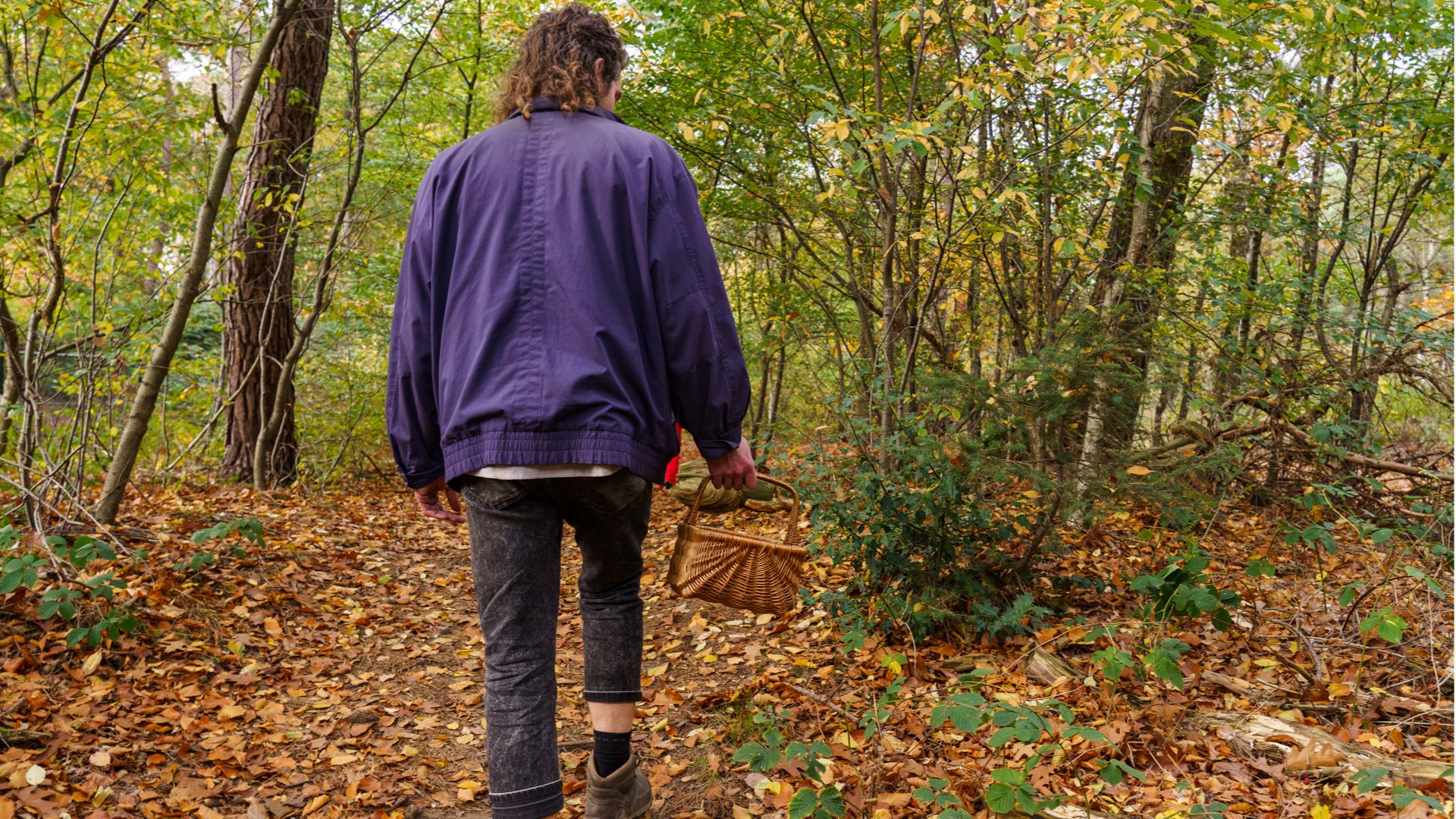
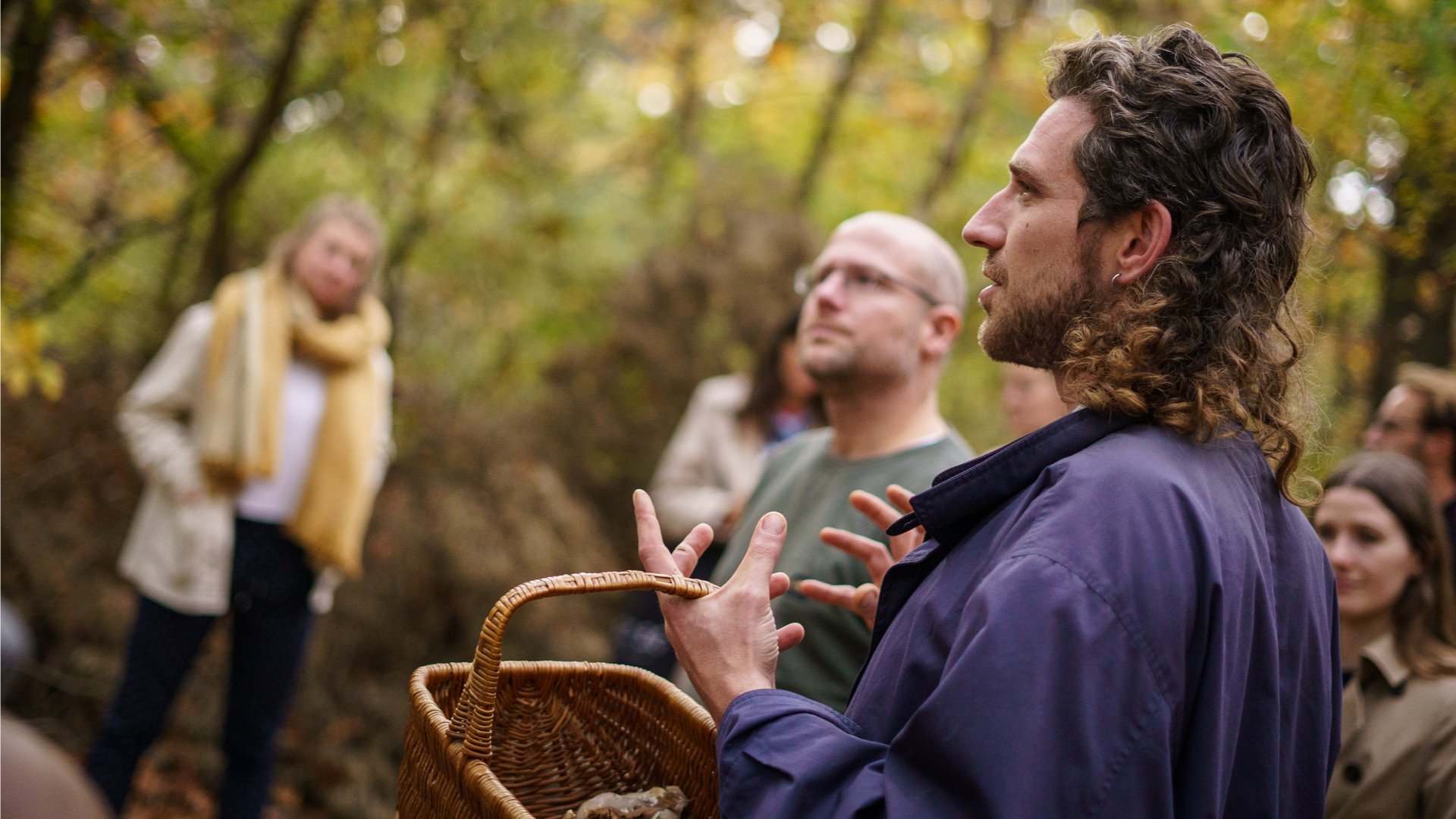

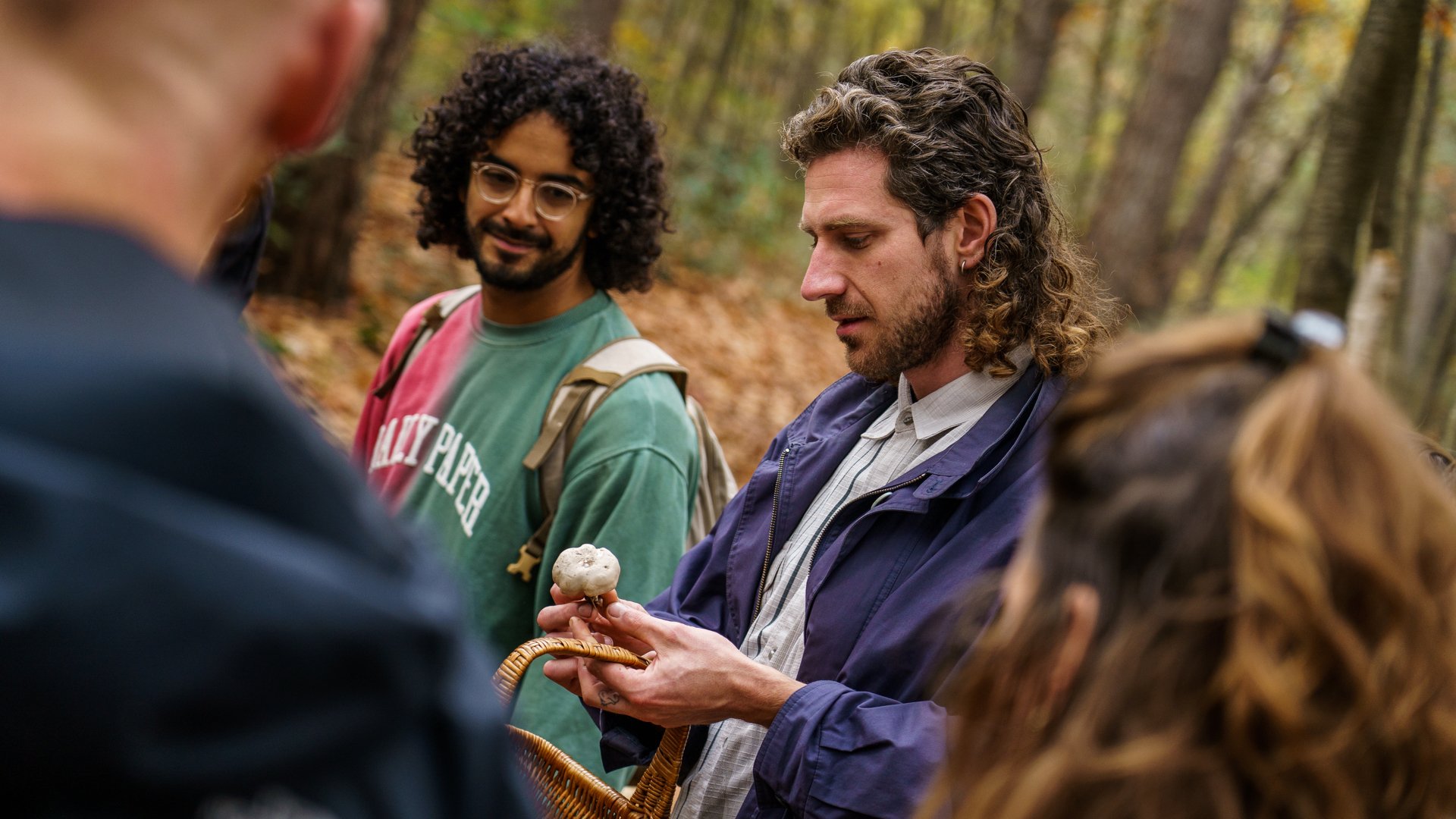
Find answers in nature
Jamie argues that we should look at nature’s systems for answers, instead of always inventing new technology to solve problems. ‘’Or a fine balance between those. I'm not anti-technology but if the price for that technology is that we destroy our entire ecosystem then the choice is easily made.’’ In his courses on permaculture and regenerative agriculture he is adamant in observing native principles. ‘’Permaculture is based on indigenous wisdom deriving from pre-setteler times, practised until this very day by Indigenous Amazonians, Native Americans and our own Sami people in Europe off course.’’ Permaculture is about observing and understanding the diversity of whole systems and observing the land learning from the animals how they forage their food. These principles have been practised by Indigenous people assumingly from before the ‘Homo’ species evolved.
To observe native principles means a different way of looking at things. ‘’If something is beautiful, it is true,’’ says Jamie. He cites an example from Kimmerer’s book. ‘’Two flowers that like to grow next to each other, attract many times more pollinators together than when they stand alone. That's an observation. Native view would say it's so harmonious and beautiful and the butterflies and bees proved that. Western science would say, the flowers are purple and yellow, complementary colours that fill the whole spectrum and therefore, all the pollinators are served. Logical reasoning, we have to find out why that is so, a view of nature as something where homogenous formulas can be applied to optimise exploitation.’’
The opposite of this scientific and empirically sound approach can be found in these ancient wisdoms. ‘’Indigenous knowledge is more about what I observe is right where human’s relationship with the earth is one of a regenerative and harmonious nature.’’
Jamie regrets to see how the Netherlands has been such a prime example of this. ‘’The ground, the river delta soil is so extremely rich and forgiving, thats why its not totally depleted yet and are the Dutch farmers so far behind in regenerative farming practises. Damn, we dammed everything, fenced things off, built the delta works. The amount of natural coast has diminished enormously, from meandering winding coasts to straight and cordoned off lines, no chance for precarious aquatic life, they’ve lost their nursery which our country originally was.’’ Such an artificial landscape is almost a lost cause, and bears no resemblance to a harmonious relationship with nature.
‘’When you see how many people there are who don't understand these kinds of principles and who don't care whether a flower dies in their meadow or not, while they manage that land, that makes me discouraged. There may have to be a very deep crisis before the realisation comes.’’ The current issues in the Netherlands surrounding nitrogen emissions could lead to a chain reaction of looking at other problems, Jamie hopes. ‘’Like disappeared wetlands, the drained swamps. People need to understand what impact it has on the further trajectory we are on.’’
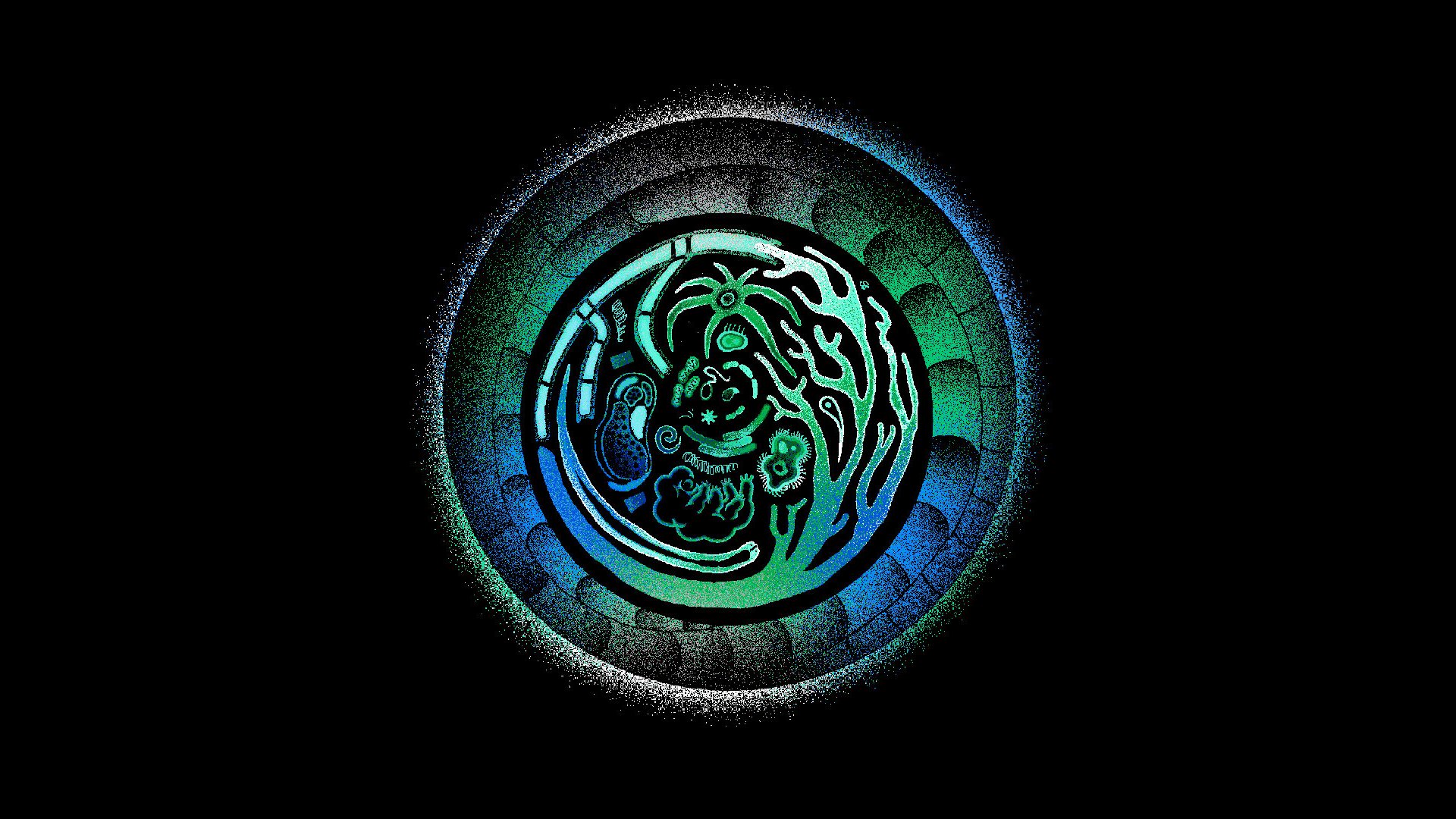
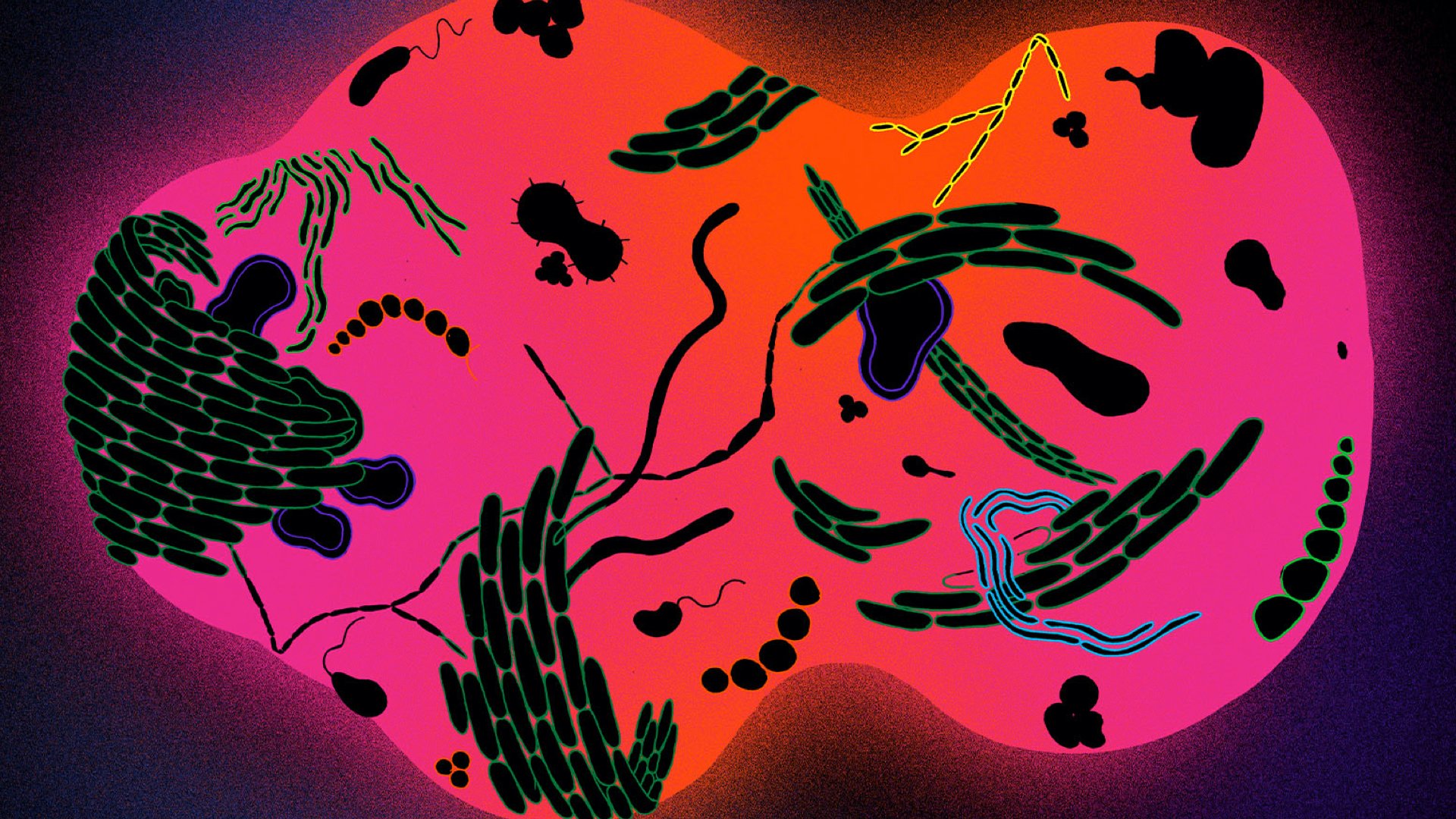
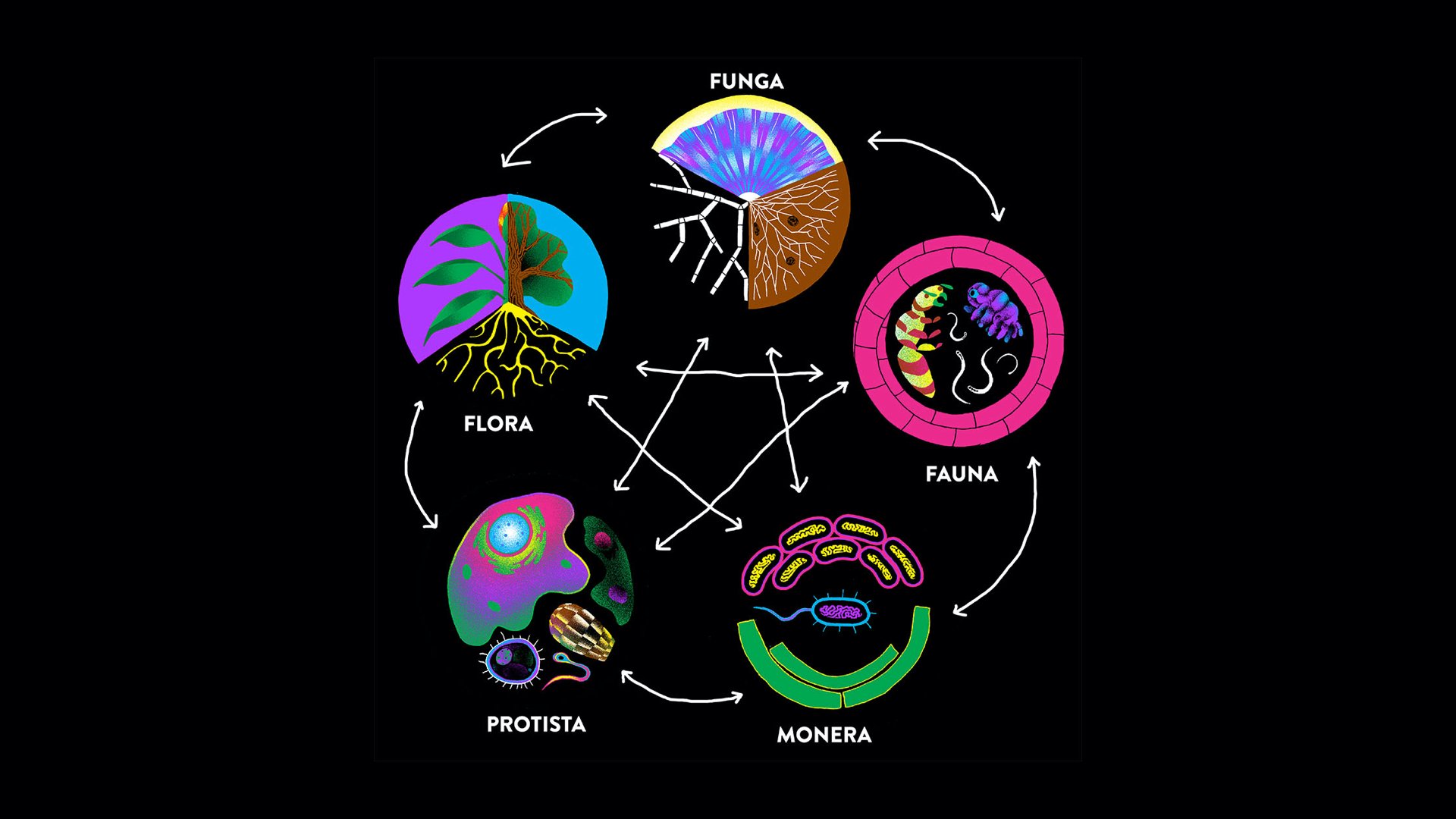
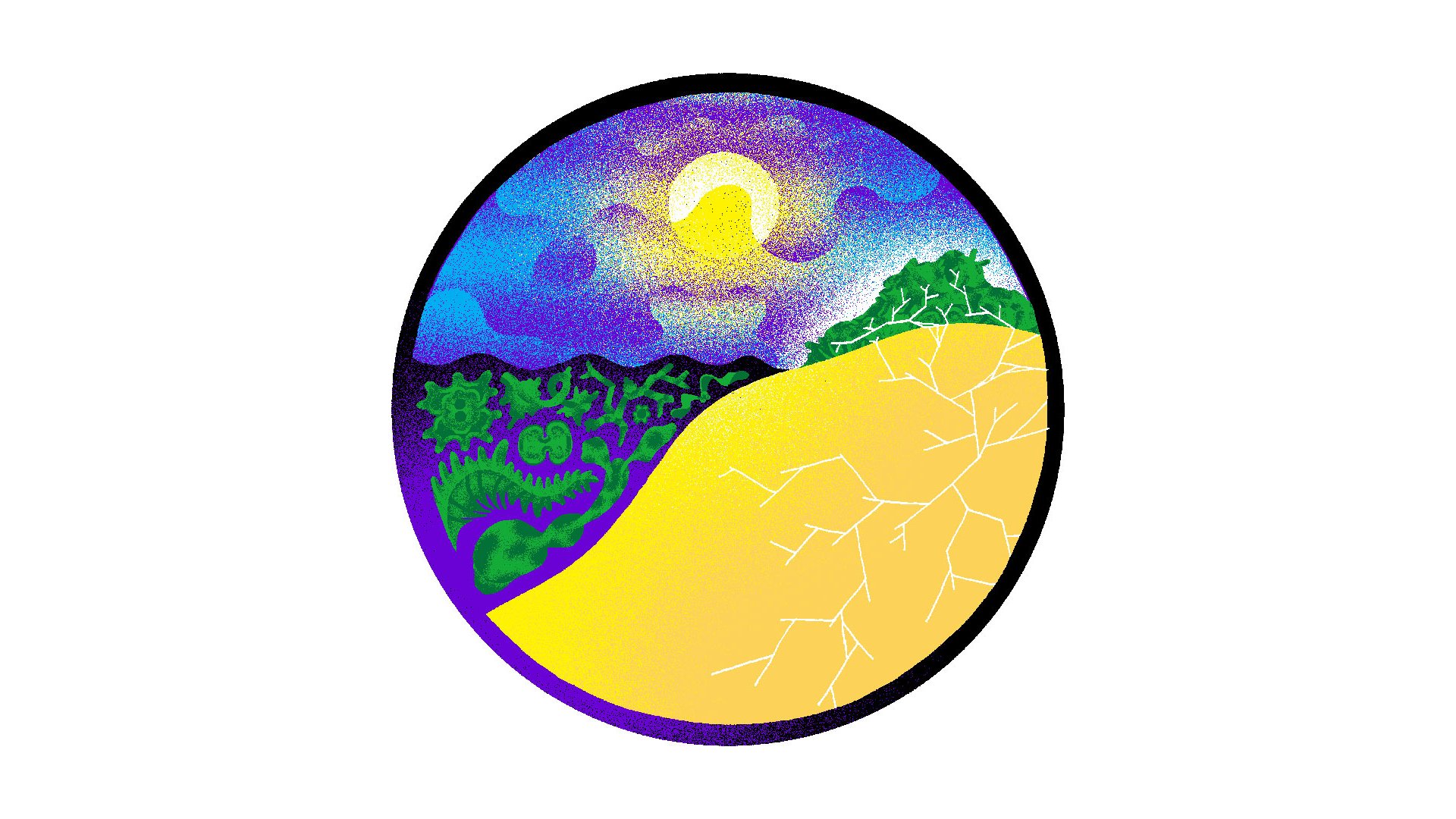
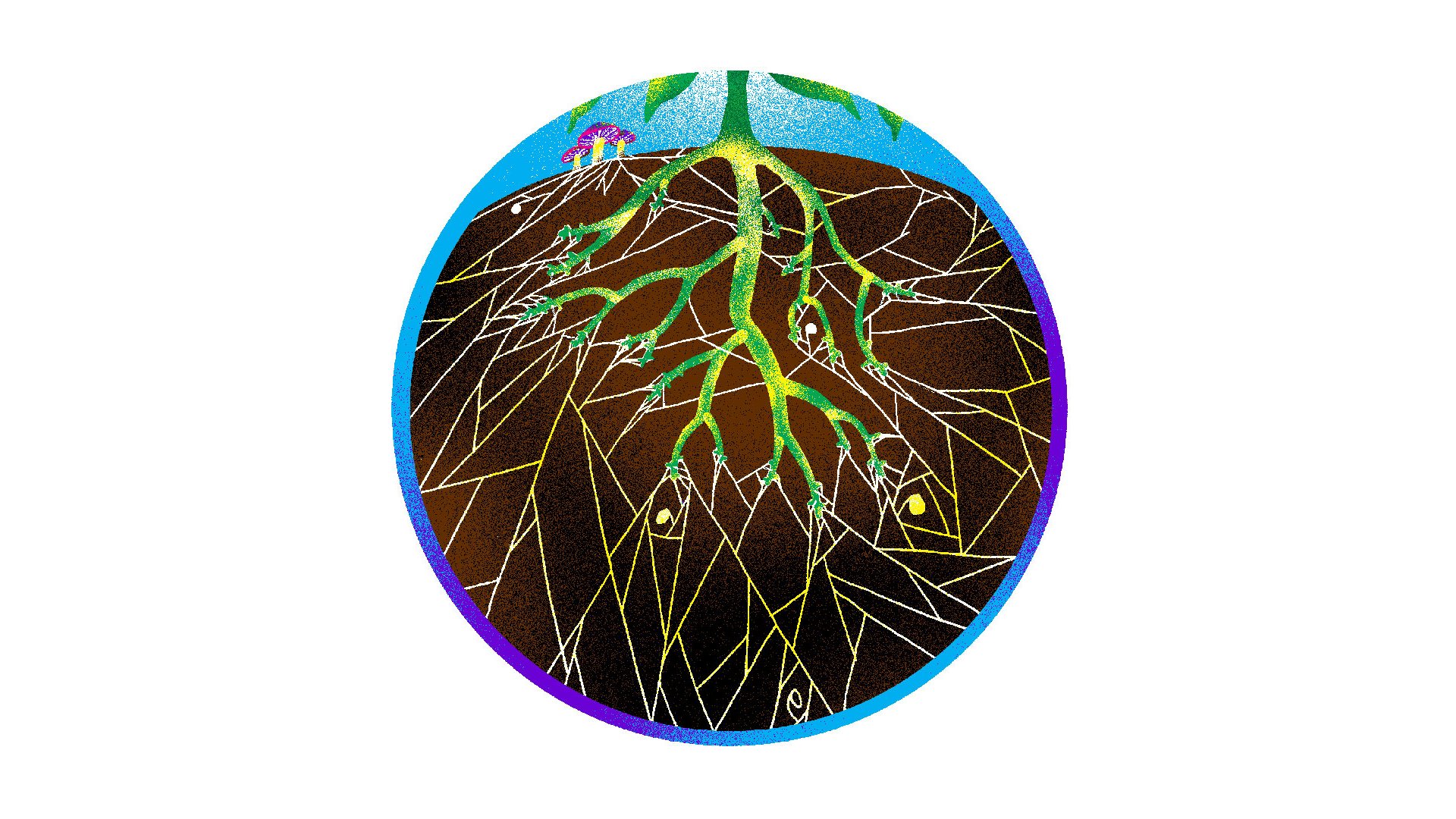
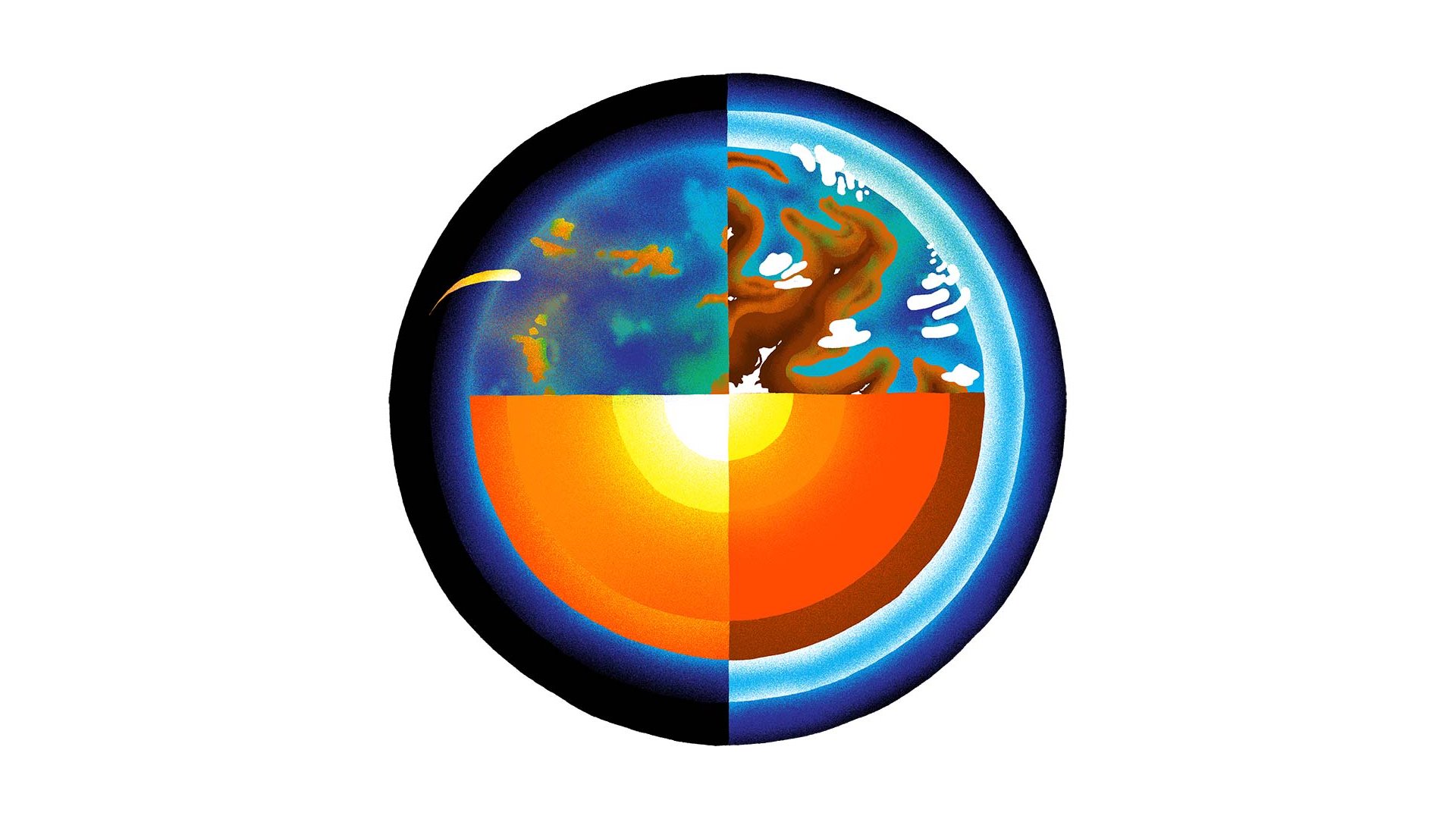
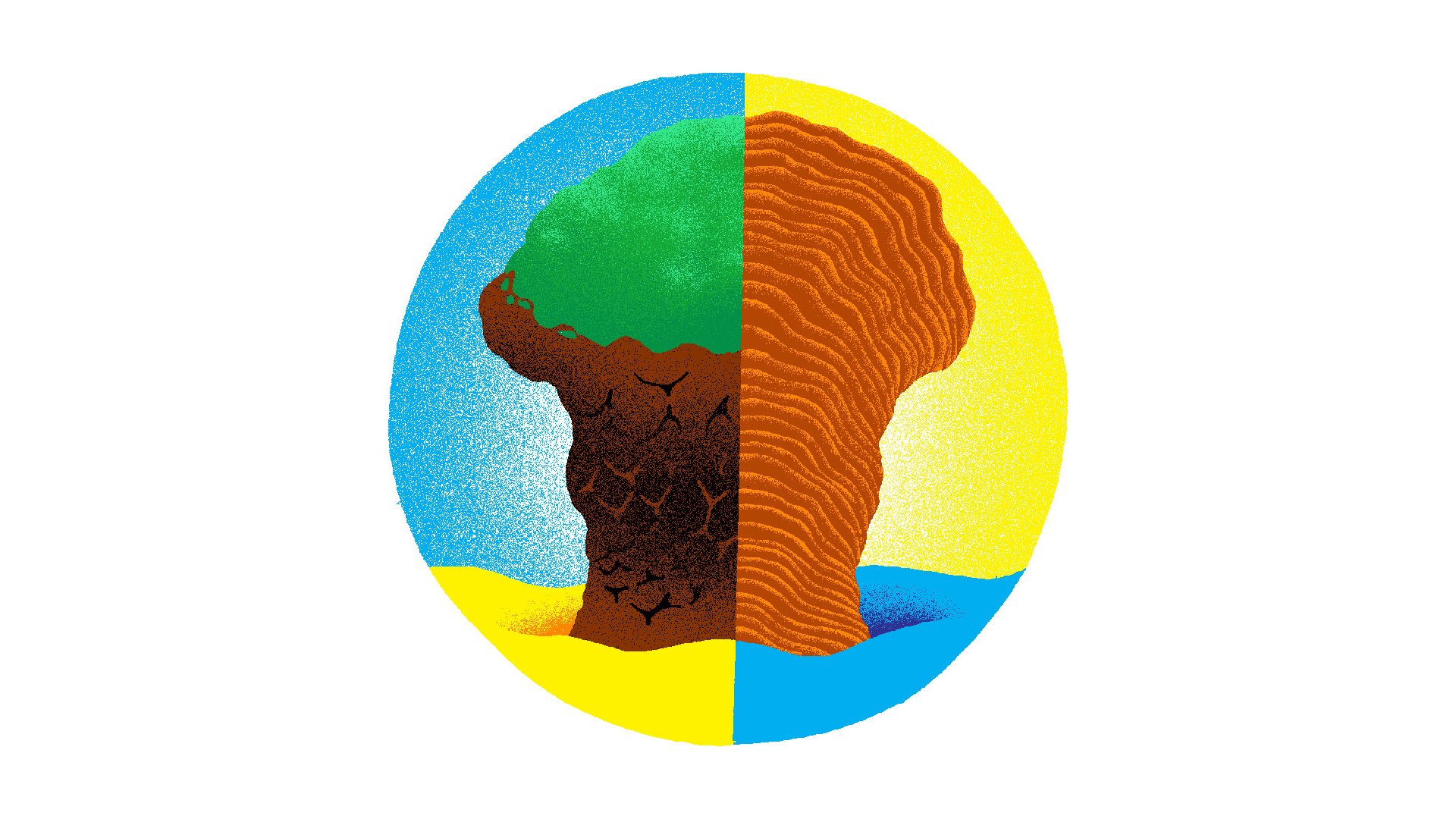
Future=fungi
A slogan prominently featuring on Jamie’s Instagram is: Future=Fungi. ‘’We have to realise the importance of fungi and pay more attention to what happens in the invisible. If we can unlock that awareness on a large scale, it can bring a lot of good things, mushrooms being medicinal and heal us, but they also put huge amounts of carbon and nitrogen in the soil in the form of fungal biomass. The lands that have been depleted - about 60% of Dutch farmland if managed wel, l can be a major sink for carbon and nitrogen. We can start with this today and with their help get out of this Dutch nitrogen crisis, and healthy soils can save us from the climate crisis all together, but we have to act now.’’
Jamie admits that it can be hard to stay positive amidst many seemingly negative developments. ‘’But I'm very happy that there are a lot of people who create really cool things like books and educators who serves as examples, who can tell passionately about things that can on their turn inspire me, and I really draw my strength from those people who do what they do.’’
‘’The realisation that life itself, this planet, is super special, is something to keep in mind. That this could have arisen, there have been so many cofactors that created life here. That the principle of life will never be eradicated is comfort to me.’’
See Jamie’s work on: jamienee.com | Photos by Bram Engelaar & Thijs Broekkamp

